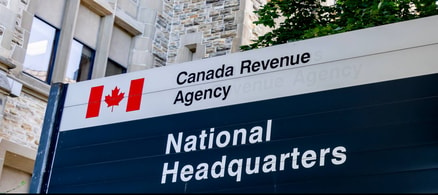The CRA views income earned through blogging as a business (with you as the sole proprietor of the business if you are not incorporating your blog business), and this amount gets added onto your regular income as your total gross income for the tax year, and it gets taxed at your marginal tax rate (unless you incorporate your blogging business). You would use Form T2125- Statement of Business or Professional Activities.
2010 was a good year- I have finally started to make some income off my blog. 2009 was a negative year, the $3.42 income for December’s 2009 Google Adsense (ha!) didn’t even get paid out, so I was able to subtract the business expenses of my blog from my regular full-time income. Namely, I took advantage of the 100% Capital Cost Allocation for computers (class 52) and got a nice discount on my beloved MacBook Pro courtesy of the tax man (this goodness, unfortunately, ended in February 2011- so if you bought a computer, keep the receipt!). This, however, can’t of course be done consistently as CRA will smell something fishy and assume you’re not actually running a business.
The Canada Revenue Agency understands that all businesses might not get off to a good start and be profitable, but you will eventually have to be making money somehow in a year or two, otherwise, that might trigger the taxman’s suspicions, and you might smell an audit coming. If you’re planning on expanding, you may find that you need to compare Canadian accounting software and upgrade to a more robust product that’s better suited to corporations.
Here are some deductions you can take off from blogging income to lessen the burn from the CRA tax man:
- Domain name expenses
- Web hosting expenses
- At-home internet (you need to calculate the % for business use)
- Computers (any data processing equipment)- up until February 2011 (from January 2009), you can deduct any computer purchase for 100% Capital Cost Allocation (class 52). If you bought a computer before February 2011, keep your receipt and you will be able to use it for your 2011 tax return next year.
- Any depreciable property including an office desk, a printer, a camera that is used for business purposes. Because these are used over a period of time, they are deducted over numerous tax years. CRA’s website explains which these assets should belong to.
- Proportion of your home you use for business– you can use a portion of the rent that you pay, or if you own your own home, you can deduct things like the proportion of property taxes, mortgage interest, home insurance, utilities etc. Again you would need to calculate the % that you are using for business use, in terms of square footage for business use/ square footage of entire home
This is what the CRA has to say about how to calculate the amount you can deduct:
“If you use part of your home for both your business and personal living, calculate how many hours in the day you use the rooms for your business, and then divide that amount by 24 hours. Multiply the result by the business part of your total home expenses. This will give you the household cost you can deduct. If you run the business for only part of the week or year, reduce your claim accordingly.”
- Advertising costs – Things like spending on gift cards for giveaways hosted on other blogs, buying supplies for giveaways and direct payment for advertising space would be applicable
- Office supplies like pens, papers, pencils, highlighters.. any stationary you would use for your blogging business
- Legal or Accounting fees– If you pay an accountant to do your taxes, you can deduct the fees associated with this expense.
- Travel– For those going to the PF Blogger Conference in Chicago hosted by PT Money, you can deduct the costs associated with that- including the flight, the hotel accommodation and meals. Meals would be deducted at 50% according to the CRA.
- Telephone and Utilities– I plan on deducting the data portion of my cell phone bill because it is used for my blogging business (checking my emails, tweeting, getting into wordpress etc.).
The most important thing, I think, in terms of tax preparation is to be a receipt hoarder and when in doubt, keep your receipts. Remember also that I’m no tax professional, so do your due diligence!





